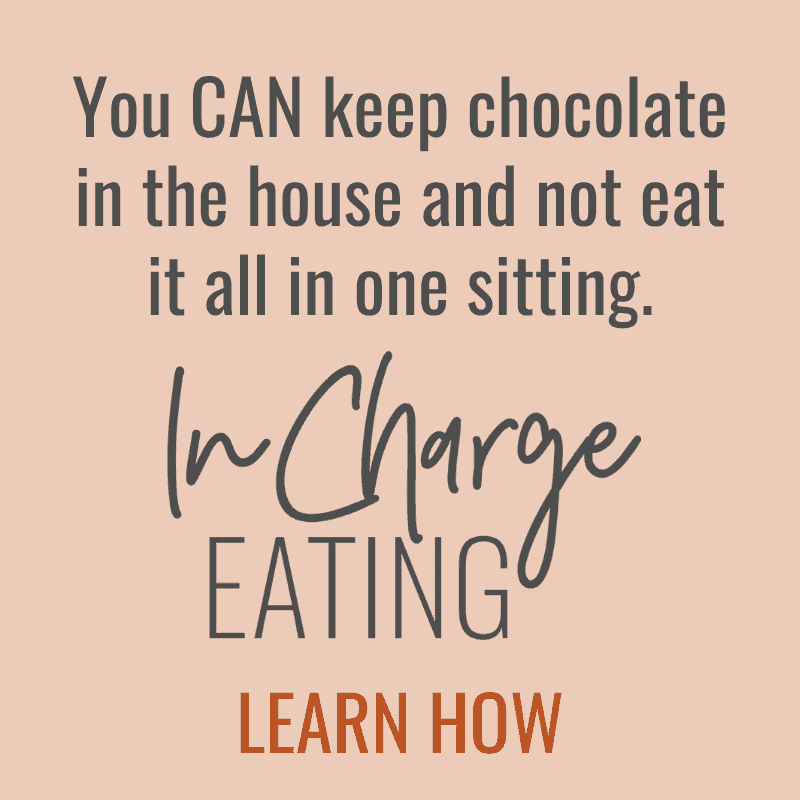“I have a question about navigating seeing people (mostly relatives) who I haven’t seen in a year (or even two due to COVID), and the fact my body is bigger than when they last saw me. I think my question is twofold – one part is how to respond if they make comments about it (e.g. thinking I’m pregnant again), the other part is how to help my own mindset around it. I know in the lead up to events I can worry about how I’ll look, what to wear and how to hold myself, and can spend the event consumed with those types of thoughts and worries instead of being present and enjoying the company and food.”
These thoughtful questions have come via a Feel Good Eating reader (and shared with their permission). While they are asking them in relation to not seeing people for a long time due to COVID, their questions are really relevant even without a global pandemic. It’s common to not see people for an extended period of time and notice we have feelings and thoughts being stirred up in anticipation of it – especially if our bodies have changed during that time.
So, this article tackles navigating the holidays when your body has changed. Specifically, how we might manage our own internalised weight biases along with the anticipated anti-fat bias from the people around us.
Bodies are meant to change
First up, let’s acknowledge that bodies are meant to change over time.
And, our bodies haven’t remained in a suspended state while our lives have been on hold.
Our bodies have continued to grow or lose hair, turnover cells, deepen lines, expand and contract hearts and lungs, digest and metabolise food, grow babies, lose or gain muscle condition, lose or gain mobility and range of movement.
So, it is reasonable to expect that weight and shape might have also changed with the passing of time.
Throw on top of that a global pandemic that has threatened the survival of our species, and it is not surprising that our primal biological instincts have been to conserve weight and/or gain weight (I cover this in more detail in In Charge Eating).
Both of these things contributing to body changes are OK.
And you are OK if your body has changed.
Naming what is really going on
The two things that the reader mentioned they are grappling with are:
- How to manage comments made about their body by others
- How to manage their own thoughts and feelings about their body and appearance so that they can remain present and enjoy the time spent with their family
So, if we know that bodies are supposed to change, what’s really going on that someone making a comment about our body can feel so uncomfortable or painful?
And what’s going on that our thoughts and feelings about our body can become all-consuming and ruin our day?
At the core, we’re dealing with our own internalised weight biases. And we’re dealing with other people’s weight or anti-fat biases.
What are weight biases?
Our weight biases are the socially informed negative attitudes, beliefs, assumptions and judgments we hold about individuals with higher weight bodies.
By extension, our internalised weight biases are the ways we apply those negative attitudes, beliefs, assumptions and judgments we hold about higher weight bodies to ourselves.
Want to read more on this? Check out:
Unsure What Weight Stigma Is? Here’s A Quick Explainer
How to navigate your thoughts and feelings
Here are a couple of ideas for how to navigate when your internalised weight bias pops up over the holidays increasing your preoccupation with your body.
Get angry
Exactly as the reader explained, worrying about our appearance and how we carry ourselves distracts us and keeps us from being present and enjoying the current moment.
As Naomi Wolf says in The Beauty Myth;
“A culture fixated on female thinness is not an obsession about female beauty, but an obsession about female obedience. Dieting is the most potent political sedative in women’s history; a quietly mad population is a tractable one.”
Remember where those thoughts and worries are stemming from – Diet Culture and patriarchy. They have nothing to do with what you look like or your weight or what you’re wearing or who you are as a person, but everything to do with how you feel you conform or deviate from societal norms.
This is your invitation to channel that worry and preoccupation into getting angry at, and actively rejecting, those systems of oppression – rather than picking apart your body and yourself.
Make a plan
To avoid spending heaps of time trying on multiple outfits, micro-analysing your appearance and your body and finding yourself in a bad body image spiral on the day of your lunch/dinner/event, you might like to plan, ahead of time, what you are going to wear, how you want to do your hair, what accessories you want to wear etc.
You want to opt for clothes that fit your current body. There’s nothing like pinching or digging or constricting clothes to drag your attention away from the people your are spending time with and focussing it in on your body.
You also want to choose things that you know suit your style. The holidays can be a fun time to dress up or try new outfits, but check in with yourself to note whether the unfamiliarity of new clothes or a new style in the past has been no big deal for you, or if it leaves you constantly fussing over what you’re wearing.
Make a mental note of what you plan to wear, or lay everything out the night before. Whatever helps you get dressed, do a quick mirror check to make sure your tags are in or your skirt isn’t caught in your undies, and then move on – ready to enjoy the day.
Practice mindfulness to notice when you start to disconnect
OK, before you click away from this article because I mentioned the M-word, I’m not talking about mindfulness in the meditative sense, but about being gently on the lookout for those signs within yourself that let you know you are hooking with thoughts about your body and disconnecting from being present.
Your warning signs might be:
Thoughts
You might be noticing more racing thoughts, or that you’ve got the same thought on repeat, or the same theme on repeat, e.g., “Are they looking at me?”, “Ugh, I can see my rolls in this top when I sit down.”, “Am I eating more than everyone else?”
Feelings
You might be noticing a tightness in your chest, or butterflies in your stomach, or a buzzing in your head, or an urge to get away from everyone.
Behaviours
For example, noticing that you are constantly adjusting your outfit, or ducking into the bathroom a lot to check your lipstick, or body checking in all of the reflective surfaces.
Then practice some grounding to help bring you back to the present
Some ideas to help ground you back in the present include:
- Taking some breaths (if paying attention to your breath feels accessible and safe for you)
- Pressing your feet into whatever surface is beneath you and noticing how that feels. Is it really solid, or a little squishy? Would it be a different experience if you were in bare feet rather than your shoes etc?
- The 5,4,3,2,1 technique where you notice 5 things you can see (holiday decorations, the pile of cutlery on the bench, the branches on trees waving slightly in the breeze etc.), 4 things you can touch (the surface of the table, the edges of your earrings, the pine needles on the tree etc.), 3 things you can hear (the dishwasher running, kids squealing, the dog barking etc.), 2 things you can smell (perfume or aftershave, or food warming in the oven or fresh cucumber being chopped up to go in a salad etc), and 1 thing you can taste (maybe the lingering taste of toothpaste from brushing your teeth earlier).*
How to manage anticipated weight bias
Anticipating being subject to other people’s weight bias or anti-fat bias can come from our own internalised weight bias, i.e., “If I think my body is not good, other people are surely going to think that as well.”
But it can also come from having witnessed family members or people close to you make judgements on food/eating/bodies in the past or maybe even direct that judgement at your food/eating/body which is incredibly painful and uncomfortable.
Make a plan
Yep, we’re making another plan!
Even if it feels like you are ‘being silly’, it can be a good idea to have made a plan ahead of time about how you want to respond (or not respond) to people making comments about your weight, your body, what you’re eating or your appearance.
Like making a plan about what you are going to wear; a plan for what you want to do if someone makes a comment can help you feel prepared, calm and in charge – rather than panicking and feeling frozen on the spot (all the while internally spiralling).
Some things to consider ahead of time:
- What is the relationship you have with the person and how important is that relationship to you? For example, you might find it easier to brush off a comment by a work colleague and just ignore it, but want to make an effort to be understood if it was your sister or a favourite uncle. Conversely, you might feel OK confronting your work colleague because you don’t really care if they get annoyed at you or don’t speak to you for a week, but less so with your mum or grandma.
- What is your personality like? If you are not a confrontational person, responding with an acerbic zinger might not be a helpful option for you.
- How likely is the other person to ‘get it’? It can be a real waste of your emotional energy to try and ‘convince’ someone about your approach to taking care of yourself if you know they are firmly rooted in diet culture.
From there, you might like to craft your responses and tuck them away in your mind or in the notes section on your phone to use when needed.
TIP: Ragen Chastain’s low cost monthly online workshops are a great place to get some ideas for responses.
Also, consider whether you actually want to respond at all. It is completely OK to ignore, change the subject or walk away if you don’t feel like engaging with other people’s anti-fat bias.
Final thoughts
Navigating the holidays when your body has changed because you might be subject to people commenting on it is rough. While it shouldn’t fall to you to deal with other people’s anti-fat bias (or have it happen at all!), it can help to be prepared for it. Along with knowing how you can keep yourself grounded and present so that you can enjoy the company and the food and all the other lovely things about the holidays.
And remember, people passing judgement about bodies, weight, appearance and eating is always about their own internal stuff and never anything about you or your worth as a human.
* I note that this technique is ableist as it relies on the five senses which not everyone has access to. Please adapt this to suit you.
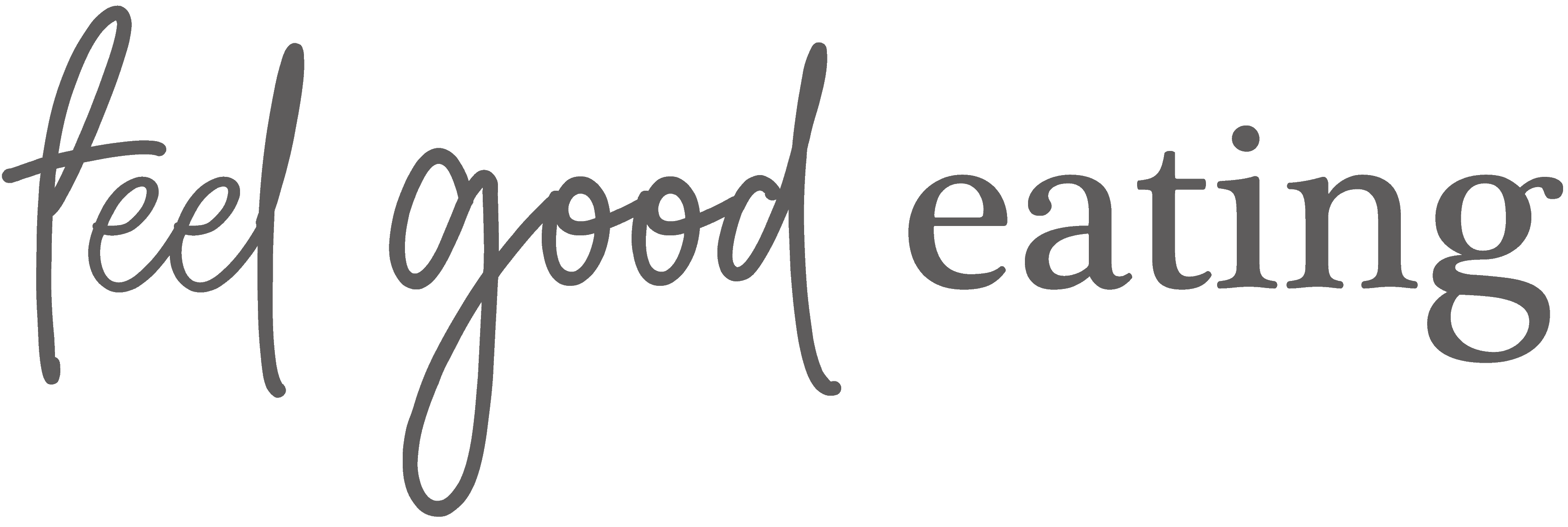
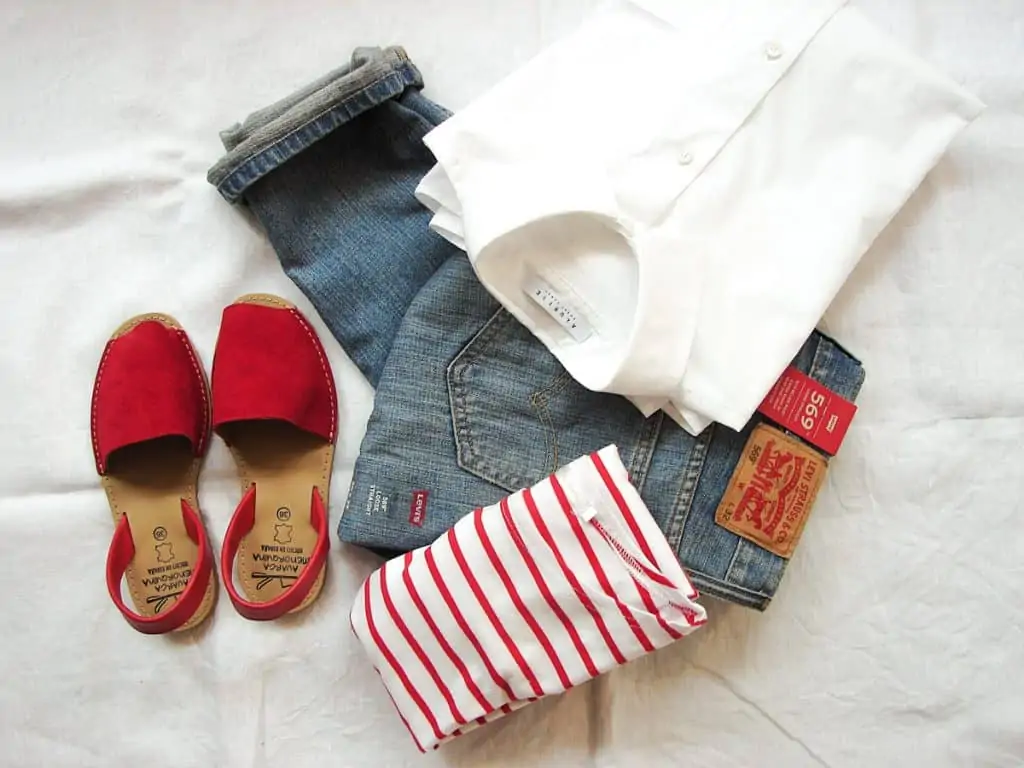
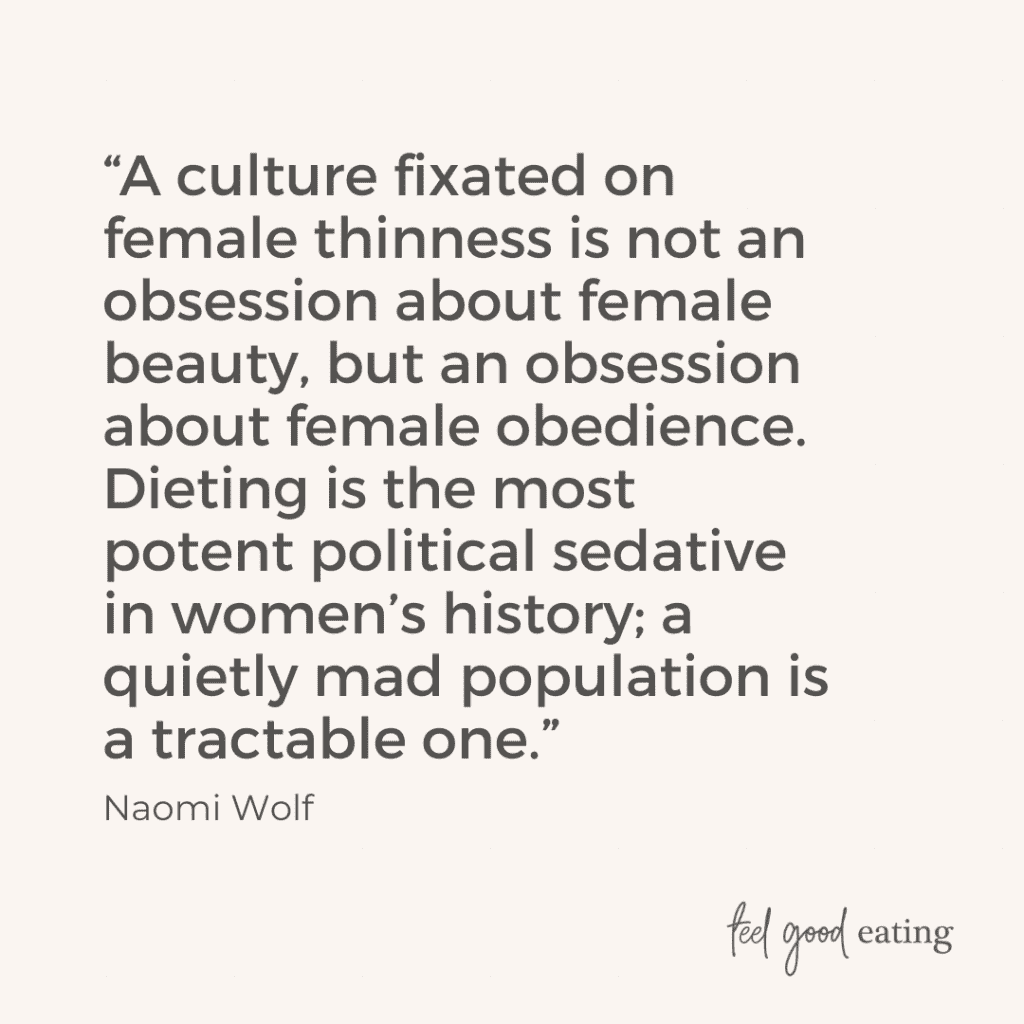
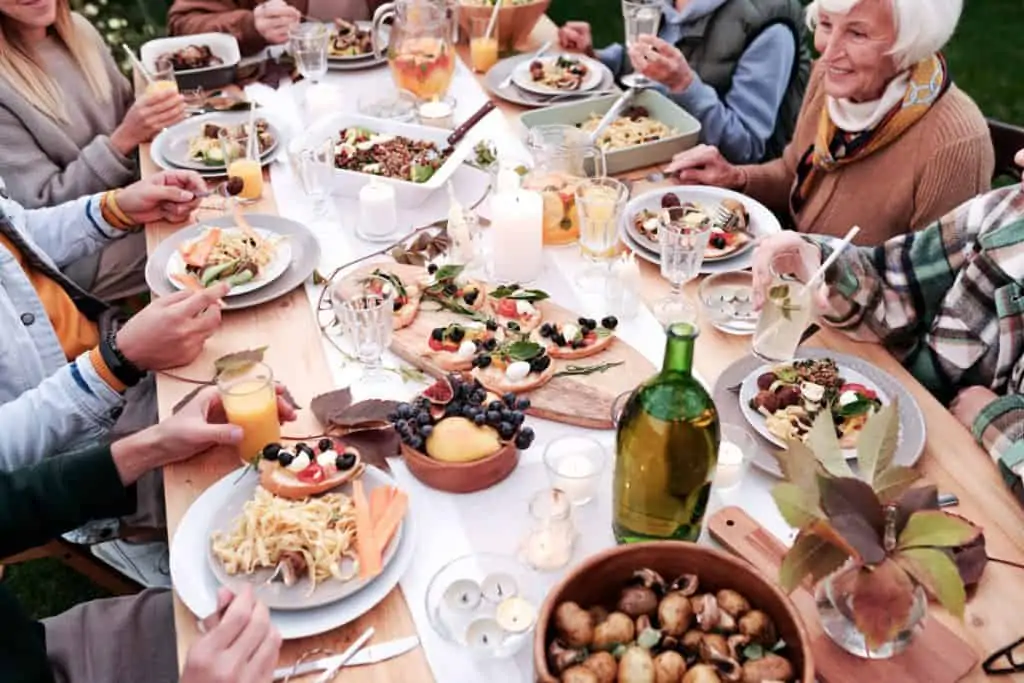
 Hi! My name is Nina.
I’m a Certified Intuitive Eating Counsellor taking the ‘diet’ out of Dietitian. I am here to help you reject diet culture, tune into your body’s own inner wisdom about how to truly nourish yourself and ultimately feel good eating™
Hi! My name is Nina.
I’m a Certified Intuitive Eating Counsellor taking the ‘diet’ out of Dietitian. I am here to help you reject diet culture, tune into your body’s own inner wisdom about how to truly nourish yourself and ultimately feel good eating™ 